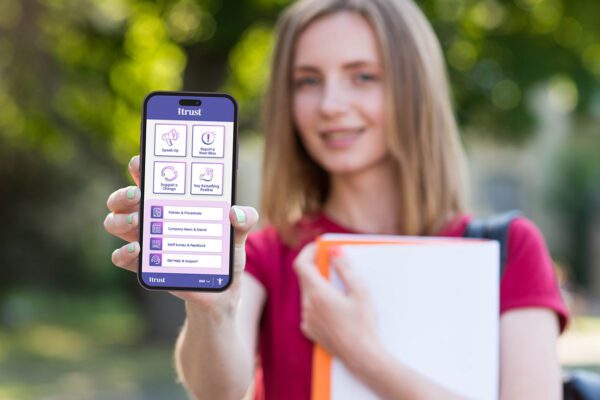Healthcare portal development solutions
Technology company helps protect NHS data with our custom portal solution
egforit Software helped a tech company launch a profitable new cyber security product with our healthcare portal development expertise.

Executive brief
Filling a gap in the market with our healthcare portal development
Our client is a technology company that provides IT solutions for both the private and public sector. While working with the NHS, the company noticed a lack of software for reporting on security vulnerabilities. egforit helped the tech company deliver a new product to fill this gap in the market. The benefits of this product were:
staff could adopt easily
financially viable for NHS
better security visibility
minimal admin required
Wondering how our healthcare portal development solutions achieved this? Read on to find out more.
The full story

The challenge
Lack of affordable healthcare solutions
As a company working closely with the NHS, our client spotted a need for easier reporting on healthcare data security. The company aimed to develop the first software designed specifically to report on NHS cyber alerts (formerly called CareCERT).
Ensuring the resulting product was cost-effective and efficient was an absolute priority for the client to market to the NHS. And because the NHS holds sensitive data for millions of people, data security was also paramount.
The tech company’s criteria for the new product were:
- affordability for the cash-strapped NHS
- visually appealing dashboards
- suitable for non-technical users
- presenting meaningful charts and metrics
However, the tech company lacked the necessary experience in custom reporting software. This led the company on a search for a qualified development partner.
The solution
Innovative cyber security solution
The company’s search for a healthcare portal development solution led to egforit Software. With 30 years’ experience in business intelligence and software development, our skills matched the requirement.
The brief in this project was to develop a platform that could scan an entire network from a central server. The software then had to compare the results with a list of industry-standard security vulnerabilities.
Over time, the client extended the brief to include scanning single devices and a version for personal home use.
Making the resulting product affordable for different NHS trusts was a priority. But the client also needed to ensure the software was easy to navigate for non-technical NHS employees. For this reason we ensured the software had a visually appealing dashboard that displayed easy-to-understand metrics. We also established secure connectivity between on-premise and cloud applications.
The benefits
Identifying security risks
The core benefit of the portal solution was increased security and data integrity for all trusts under the NHS. The technology became a fundamental way to increase the visibility of a company’s network and highlight areas most vulnerable to cyber-attacks. Furthermore, the resulting product was affordable, effective, and commercially viable.
Effective healthcare portal development
To find out how we can help you, check out our digital portals page.


